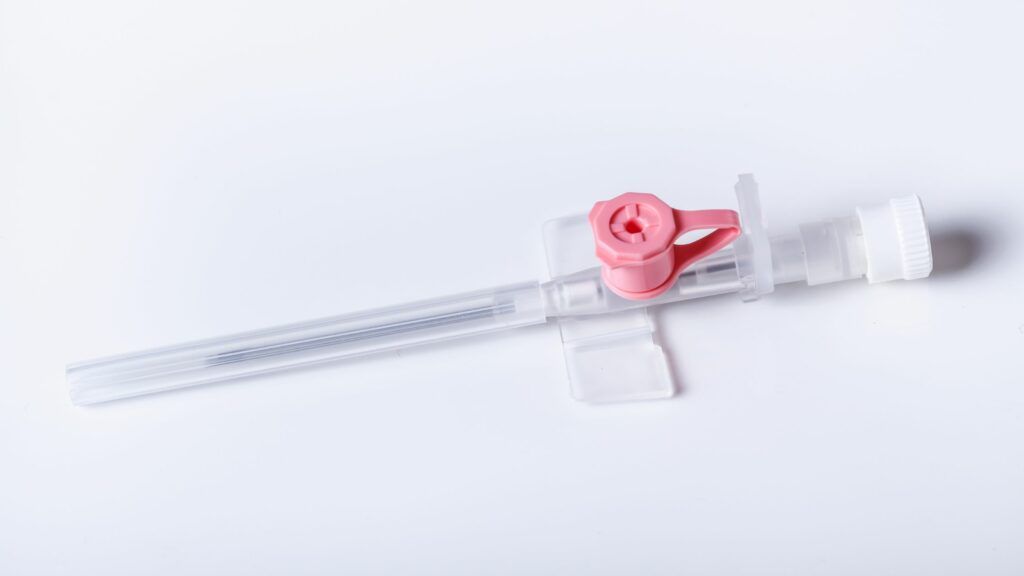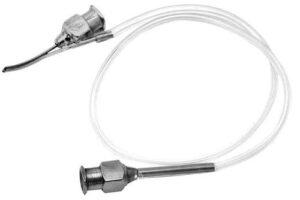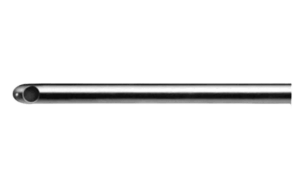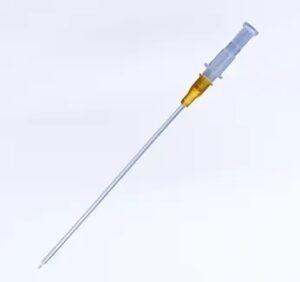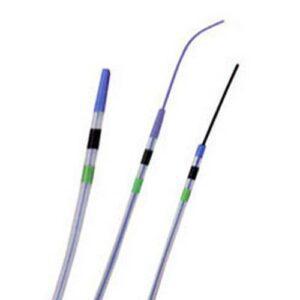Cannulas are widely used in medical and cosmetic procedures, and understanding their benefits and applications is crucial for healthcare professionals. We’ll explore the various types of cannulas available in the market. We’ll also cover the benefits and applications of each type of cannulas.
But before we dive into the details of cannulas, let’s talk about Medzell, a futuristic B2B platform that promotes Indian medical devices in emerging markets. Medzell offers a wide range of medical equipment and supplies, including high-quality cannulas at competitive prices. Whether you’re a healthcare provider looking for reliable and affordable medical devices or a distributor interested in expanding your product portfolio, Medzell is the perfect platform for you.
Different Types of Medical Cannulas
Medical cannulas are essential devices used in a variety of healthcare settings and procedures. They are thin, hollow tubes designed to insert into the body to deliver or extract fluids, gases, or medications. Each type of cannula has its own unique design and purpose. In this section, we will explore some of the most common types of medical cannulas and their specific applications
Nasal Cannulas
- Used for delivering supplemental oxygen to patients with respiratory conditions.
- Typically consist of two small prongs that fit into the patient’s nostrils
- Commonly used in hospitals, clinics, and home care settings.
Intravenous (IV) Cannulas
- Used for delivering medications, fluids, or blood products directly into the patient’s bloodstream.
- Inserted into a vein, usually in the arm or hand.
- Come in various sizes and gauges depending on the patient’s needs.
Central Venous Cannulas
- Used for delivering medications, fluids, or parenteral nutrition to critically ill patients.
- Inserted into a large vein, such as the subclavian vein or jugular vein.
- Provide direct access to the central venous system.
Arterial Cannulas
- Used for monitoring blood pressure and drawing arterial blood samples for analysis.
- Inserted into an artery, typically in the radial artery of the wrist.
- Commonly used in intensive care units (ICUs) and operating rooms.
Tracheostomy Cannulas
- Used in patients who have undergone a tracheostomy procedure.
- Provide a secure airway and allow for the removal of respiratory secretions.
- Come in different designs, including cuffed and uncuffed variations.
Gastrostomy / Jejunostomy Cannulas
- Used for enteral feeding in patients who are unable to consume food orally.
- Inserted into the stomach (gastrostomy) or jejunum (jejunostomy) through a surgical opening.
- Enable the delivery of liquid nutrition directly into the gastrointestinal tract.
Ophthalmic Cannulas
- Used in eye surgeries and procedures, such as cataract surgery or intraocular injections.
- Designed to deliver medications or fluids precisely to the eye structures.
- Include various types, such as anterior chamber cannulas or subtenon cannulas.
Choosing the Right Medical Cannula Size
Selecting the appropriate size of medical cannulas is crucial to ensure optimal performance and patient comfort during medical procedures. This section offers a comprehensive size guide to assist you in selecting the appropriate medical cannulas based on factors such as diameter, length, and other specifications, ensuring a perfect fit for your specific requirements.
Diameter
- The diameter of a cannula refers to the size of its lumen, which determines the flow rate of fluids or gases passing through it.
- Cannulas with larger diameters allow for higher flow rates, while smaller diameters are suitable for slower infusions or delicate procedures.
- Common diameter sizes for medical cannulas range from 14 to 22 gauge, with 14 being the largest and 22 being the smallest.
Length
- The length of a cannula is measured from the insertion site to the tip.
- Longer cannulas are used for deeper insertions or procedures requiring access to distant anatomical sites.
- Shorter cannulas are suitable for superficial applications or when precise control is needed.
Catheter Size
- Some medical cannulas, such as IV or central venous cannulas, have catheters attached to them for extended access or infusion.
- The size of the catheter can vary, typically ranging from 16 to 24 gauge.
- Larger catheter sizes offer higher flow rates and are commonly used for rapid infusions or blood transfusions.
When selecting the right size of medical cannulas, it’s essential to consider the patient’s condition, the intended procedure, and the desired outcome. Here are a few key factors to keep in mind.
- Patient’s Age and Condition: Infants and pediatric patients may require smaller cannulas due to their delicate anatomy. Patients with specific medical conditions or restrictions may also necessitate specific sizes.
- Procedure Requirements: Different procedures may have specific size recommendations based on the targeted area, required flow rate, and desired outcome.
- Compatibility: Ensure that the selected cannula size is compatible with the administration set, tubing, and other medical devices being used.
Benefits of Medical Cannula
Medical cannulas offer a wide range of benefits in various medical procedures and patient care. Let’s explore some of the key benefits of using medical cannulas.
- Precise Medication Delivery: Medical cannulas allow for precise and controlled administration of medications, fluids, or gases directly into the bloodstream, tissues, or body cavities. This ensures accurate dosing and targeted delivery to the desired site, optimizing the effectiveness of treatment.
- Improved Patient Comfort: Cannulas are designed to minimize patient discomfort during insertion and usage. They are available in different sizes and styles, allowing healthcare professionals to select the most suitable cannula for each patient, ensuring a comfortable fit and reducing pain or irritation.
- Enhanced Surgical Procedures: In surgical settings, cannulas play a vital role in facilitating access to the surgical site. They provide a conduit for surgical instruments, such as endoscopes or laparoscopic tools, enabling minimally invasive procedures with smaller incisions, reduced trauma, and faster recovery times.
- Efficient Fluid Drainage: Certain types of cannulas, such as chest or abdominal drains, are used to remove excess fluids or air from the body. These cannulas aid in the drainage of fluid collections, improving respiratory function, relieving pressure, and promoting faster healing.
- Continuous Monitoring and Sampling: Cannulas with integrated ports allow for continuous monitoring of vital signs, such as blood pressure or oxygen saturation. They also enable frequent blood sampling for diagnostic purposes, reducing the need for repeated needle insertions and minimizing patient discomfort.
- Oxygen Delivery: Oxygen cannulas are commonly used to provide supplemental oxygen therapy to patients with respiratory conditions. They deliver a controlled flow of oxygen directly into the nostrils, improving oxygenation and alleviating symptoms of hypoxia or respiratory distress.
- Reduced Infection Risks: High-quality medical cannulas are designed to minimize the risk of infection. They are often made from sterile materials, feature smooth surfaces to reduce the risk of bacterial adherence, and incorporate secure connections to prevent leakage or contamination.
- Versatility in Medical Procedures: Medical cannulas find applications across a wide range of medical specialties and procedures. Medical cannulas find application across various medical disciplines including anesthesiology, cardiology, critical care, emergency medicine, surgery, and more. This demonstrates their versatility and indispensable role in the field of healthcare.
- Efficient Wound Healing: Cannulas used for wound irrigation or negative pressure wound therapy help promote effective wound healing. They facilitate the removal of debris, improve blood flow, and provide an environment conducive to healing, ultimately enhancing patient outcomes.
- Customization and Adaptability: Medical cannulas are available in various sizes, shapes, and configurations, allowing healthcare professionals to select the most appropriate cannula for each patient and procedure. This customization ensures optimal performance and patient comfort.
In summary, medical cannulas offer numerous benefits in medical settings, ranging from precise medication delivery and improved patient comfort to enhanced surgical procedures and efficient fluid drainage. Their versatility, customization options, and contribution to patient care make them indispensable tools in modern healthcare.
Selecting High-Quality Medical Cannulas
High-quality cannulas are designed to meet rigorous standards, providing reliable performance and enhancing patient experiences. When it comes to selecting medical cannulas, several factors come into play.
- Material Selection: The material used in manufacturing medical cannulas significantly impacts their quality and functionality. High-quality cannulas are typically made from biocompatible materials such as stainless steel or medical-grade polymers. These materials offer excellent strength, durability, and compatibility with the human body, reducing the risk of adverse reactions and ensuring patient safety.
- Manufacturing Standards: Adhering to strict manufacturing standards is crucial in producing high-quality medical cannulas. Reputable manufacturers follow industry guidelines and regulations to ensure the precision, reliability, and consistency of their products. By choosing cannulas from trusted manufacturers, you can have confidence in their quality and performance.
- Design and Features: Consider the design and features of the cannulas to ensure they meet your specific requirements. Look for cannulas that offer ergonomic designs, smooth insertion, and secure connections. Features like tapered tips, adjustable flow rates, and anti-clogging mechanisms can enhance the overall functionality and efficiency of the cannulas.
- Sterilization and Packaging: Proper sterilization and packaging are vital to maintain the integrity and safety of medical cannulas. High-quality cannulas undergo thorough sterilization processes, eliminating any potential contaminants. They are also packaged in a sterile environment, ensuring their sterility until the point of use. Check for clear indicators of sterilization and packaging integrity when selecting cannulas.
- Product Certification and Compliance: Verify that the medical cannulas meet relevant certifications and regulatory requirements. Look for certifications such as ISO 13485, which ensures adherence to quality management systems for medical devices.
Adhering to regulatory bodies like the FDA (Food and Drug Administration) offers an additional guarantee of safety and quality, ensuring compliance with established standards and regulations.
Ensuring Safety: Sterilization, Handling, and Infection Prevention
By following these guidelines, you’ll minimize the risk of infections and ensure optimal patient outcomes.
Sterilization of Medical Cannulas
Proper sterilization of medical cannulas is crucial to eliminate harmful microorganisms and prevent cross-contamination. Here are some essential steps to follow.
- Thoroughly clean the cannulas using recommended disinfectants or sterilizing agents.
- Utilize appropriate sterilization techniques, such as autoclaving or ethylene oxide sterilization, based on the cannula’s material and manufacturer guidelines.
- Follow strict sterilization protocols to maintain the integrity and sterility of the cannulas until their use.
Handling and Storage of Medical Cannulas
Proper handling and storage of medical cannulas play a vital role in preserving their quality and preventing contamination. Consider the following tips.
- Ensure healthcare professionals responsible for handling cannulas adhere to strict hand hygiene protocols.
- Store cannulas in a clean and controlled environment, away from moisture, dust, and other potential contaminants.
- Follow manufacturer instructions for proper storage, including temperature and humidity requirements.
Infection Prevention with Medical Cannulas
Preventing infections associated with medical cannulas requires a multi-faceted approach. Here are some key practices to implement.
- Strictly adhere to aseptic techniques during cannula insertion, ensuring a sterile field and using appropriate personal protective equipment (PPE).
- Regularly assess the insertion site for signs of infection, such as redness, swelling, or discharge, and promptly address any concerns.
- Educate patients on proper cannula care, including cleaning techniques and recognizing signs of infection or complications.
- Follow established guidelines for the duration of cannula usage, replacing or repositioning them as necessary to prevent complications.
By prioritizing safety and implementing these best practices, healthcare professionals can minimize the risk of infections and promote optimal patient outcomes with medical cannulas.
Cannulas from Leading Indian Manufacturers
ASF Aspiration-Irrigation Simcoe Cannula 23 Gauge
ASF Aspiration-Irrigation Simcoe Cannula 23 Gauge is produced by A.S.F. Universal, a leading manufacturer of cannulas in India. The cannula is equipped with a front-opening angled 23-gauge irrigation and a 25-gauge aspirating cannula featuring a .30mm port. The needle hub has irrigation, while the tubing hub has aspiration, and it is supplied with silicone tubing. With these features, ASF Aspiration-Irrigation Simcoe Cannula 23 Gauge is suitable for use in surgical procedures that require both aspiration and irrigation.
Nasal Oxygen Tube
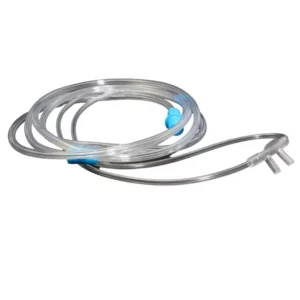 Our Nasal Oxygen Tube, meticulously crafted by Nishi Medcare, India’s trusted healthcare brand, ensures optimal respiratory support. Crafted from premium materials, it guarantees durability and reliability. Its clear, soft nasal pronge offers a comfortable oxygen delivery system.
Our Nasal Oxygen Tube, meticulously crafted by Nishi Medcare, India’s trusted healthcare brand, ensures optimal respiratory support. Crafted from premium materials, it guarantees durability and reliability. Its clear, soft nasal pronge offers a comfortable oxygen delivery system.Small Cannula Single Hole
Small Cannula Single Hole by Adarsh Surgical Works is a top-quality liposuction cannula designed for the collection of live fat cells. The cannula is built specifically to minimize damage to adjacent tissue, reducing edema and inflammation during surgery. Made from type 304 stainless steel of the highest quality, Small Cannula Single Hole is produced using CNC machines by highly skilled technicians. The cannula is calibrated using digital caliper equipment to regulate the tip size, and it undergoes tempering and hardening in a furnace. With these features, Small Cannula Single Hole is an excellent choice for patients who require small-scale extraction.
Master-vet
Master-vet is a type of IV cannula manufactured and globally supplied by Disposafe Health and Life Care Ltd. in India. The cannula features an extremely sharp siliconized back-cut needle made of stainless steel, making venipuncture pain-free and simple. The device has a silicone-coated catheter that ensures a smooth surface and little discomfort for both patients and medical professionals. The cannula has a sizable flashback chamber that enables immediate visualization for successful venipuncture. With these features, Master-vet is ideal for use in veterinary practices.
ERCP Cannula
ERCP Cannula is manufactured by Medinova Endosys, one of the prominent manufacturers of cannulas in India. The device has a single-lumen design that accepts 0.035-inch guidewires and a special design that allows the tip to be curved towards the common bile. ERCP Cannula has visual distal markers that aid awareness of the depth of cannulation, and when used endoscopically, the radiopaque contrast material of the cannula obscures the bile tract to allow for fluoroscopic viewing. With these features, ERCP Cannula is suitable for use in endoscopic retrograde cholangiopancreatography procedures.
Where to Buy Cannulas Online
If you’re looking to buy cannulas online, there are many options available. Medzell is a futuristic B2B platform that promotes Indian medical devices in emerging markets. Whether you need disposable or reusable cannulas, plastic or metal, Medzell has options to meet your needs. They also offer a variety of specialty cannulas for unique medical procedures. With their easy-to-use website and fast shipping, buying cannulas online has never been easier. With the help of platforms like Medzell, buying cannulas online has never been easier or more affordable.
Conclusion
In conclusion, cannulas stand as indispensable tools in modern medical practice, facilitating a wide array of procedures with their diverse types and benefits. The right choice of size and quality ensures optimal patient comfort and successful outcomes. Yet, beyond their technical attributes, cannulas embody the commitment to precision and patient well-being that characterizes healthcare today. By adhering to stringent infection control measures and harnessing advancements in medical technology, we can continue to rely on cannulas as integral instruments that underpin the pursuit of excellence in patient care. Their legacy remains intertwined with medical progress, embodying the dedication of medical professionals to a healthier future.
